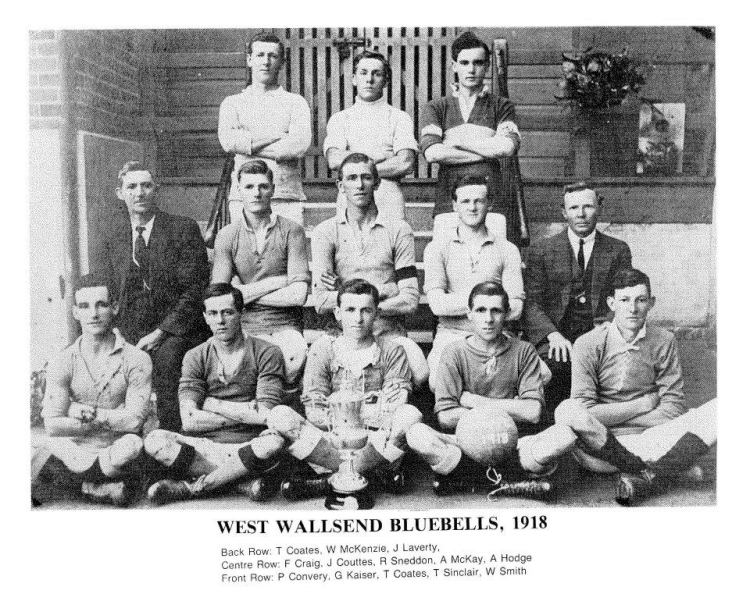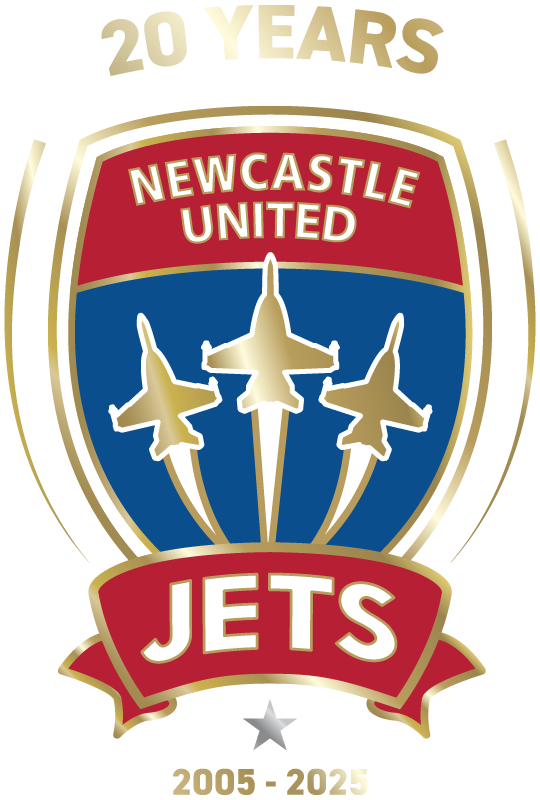In 2021/22, the Newcastle Jets will return to the Gold in a statement that the Club is committed to reconnecting with our origins and upholding the history of football in the region.
As part of that focus, this season’s jersey will also feature the number ‘1884’ boldly on the back – the year in which the first football club in Northern NSW was founded.
In an upcoming ‘1884’ series, local award-winning football author, and University of Newcastle Emeritus Professor, John Maynard, will travel through the history of football in our region, highlight some of the heroes that put us on the world map, and ultimately, explore the historic foundations that have allowed the Jets to flourish.
This edition pinpoints how football came to Northern NSW and some of the successes this region has achieved along the way.

Today, very few people fully understand the long history and significance of football in Newcastle and northern New South Wales.
This proud history stretches back an incredible one hundred and thirty-seven years. Today we have the Newcastle Jets flying proudly as the football flagship of the region, but it is critically important that we acknowledge, recognise, and celebrate the long football history and its connection with the Jets and this region.
FOOTBALL’S ARRIVAL TO NEWCASTLE MINES
The First match in Australia played under English Association Football rules is thought to have been played between the Wanderers and Kings School Boys at Parramatta in 1880. The Wanderers won the game 5-0.
Football was not long in coming north as droves of British immigrants flocked to Newcastle and the Hunter Valley for working opportunities in the mines.
It is estimated that there were twenty-eight pits in operation in and around Cessnock alone which provided working opportunities to over 11,000 miners. English, Scottish, Welsh, and Irish men arrived and, in many instances, had packed a football in their luggage. They quickly established clubs and games.

The average northern footballer worked in one of the many pits active in the area during the late nineteenth century. A pit could employ as many as 500 men. No one today can comprehend what it was like working in those mines over a 120 years ago. It was dangerous, dirty, filthy, hard, back-breaking work. Long, long hours, only relieved at the end of the day by a cold bath and a cold beer.
The miners had one day off every second Saturday and that was ‘football day’.
THE BIRTH OF MINMI RANGERS
A group of Scottish miners formed the now famous Minmi Rangers in 1884. Minmi is an Aboriginal word meaning ‘water lily’ that proliferates in the area. In the late nineteenth century, it was a thriving coal mining centre.
Minmi Rangers (white shirts, white shorts black socks) won the first four Northern Districts Association Football premiership from 1886 – 1889. Burwood United interrupted the run in 1890 but Minmi came back to win the title again three years running 1891-1893 and were undefeated in each of those seasons.
The formation of the club in 1884 was initially sparked by a group of Scottish miners walking home from the pit and discussing the news of the Scottish Cup final between Queens Park and Vale of Levan. This group consisted of Jack Winning, Bob Frame, Jim Wilson, Charlie Kilpatrick, Bill McIllroy, Jim and Bill McCroarie and Andy Bryden. Bill McCroarie is credited with saying on the walk home ‘Let’s form a football club.’

Things moved quickly and the next day the men approached the Colliery Clerk, Bill Ritchie, about their wish to establish a football team. He was quickly won over and promised to act as the club secretary. As the meeting broke up the Pit Manager, Mr Gardiner had just walked in and asked, ‘What’s going on?’
When told of the plan he put his hand in his pocket and donated a sovereign and instructed Bill Ritchie to give a similar donation from the cash box.
The men now with financial backing ordered three footballs from Gillon’s store. Soon florins and half florins flowed in to support the team. They selected Kelly’s Paddock as the playing ground and volunteers were mobilised to remove two large gum trees, clear the scrub and move hundreds of barrow loads of soil to level the ground. Goalposts were erected and the Minmi Rangers were born.
SUCCESS FOR THE RANGERS
The pinnacle of achievement for Minmi Rangers was when they won the State Gardiner Cup Championship in 1892.
One Sydney critic stated: ‘Their machine-like combination is the best we have seen in Sydney.’ That victory in Sydney was responsible for huge celebrations in the north. It is not clear how, but a message was relayed back home to inform the local community and families that the team had won the cup.

There was great excitement, but the celebrations were somewhat subdued when it was realised that they would all be in church on the Sunday evening when the team returned home to Minmi by tram.
Discussions were hastily held with the respective clergymen and as a result the ministers all cut short their services that evening so the families and community could be at the station to welcome back their conquering heroes.
HISTORIC CLUBS OF THE REGION
Minmi Rangers were established before Liverpool, Tottenham Hotspurs, Arsenal, and most of the English Premier League Clubs.
They were soon followed by other clubs that included Hamilton Athletic (1884), Lambton Thistles, Burwood United, Carrington Blackwatch, Wallsend Rovers (known as the Bolshies later converted to Red Devils).

Famous Newcastle clubs like Adamstown Rosebuds in 1889, West Wallsend Athletic (later Bluebells) in 1891, Young Wallsend formed in 1892 (later changed to Edgeworth) soon followed.
Sadly, due to a recession in the coal industry the Minmi Rangers lost their senior status in 1911 and disappeared from the top ranks of northern teams.
This is the history that the Newcastle Jets carry on their backs every time they step on to the park. Let us all celebrate the history of the region by getting behind the Jets and continue the proud winning record of our past.






